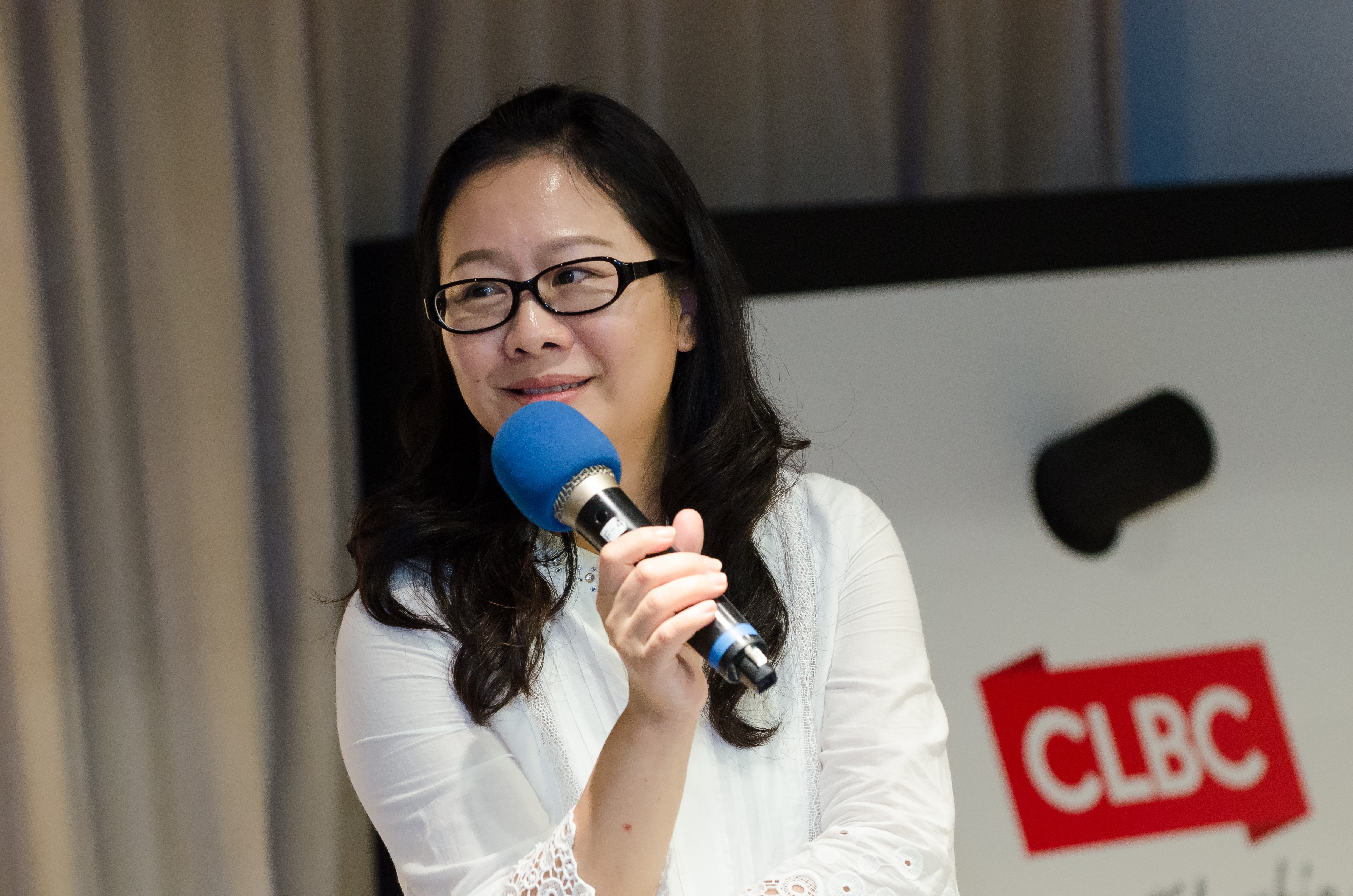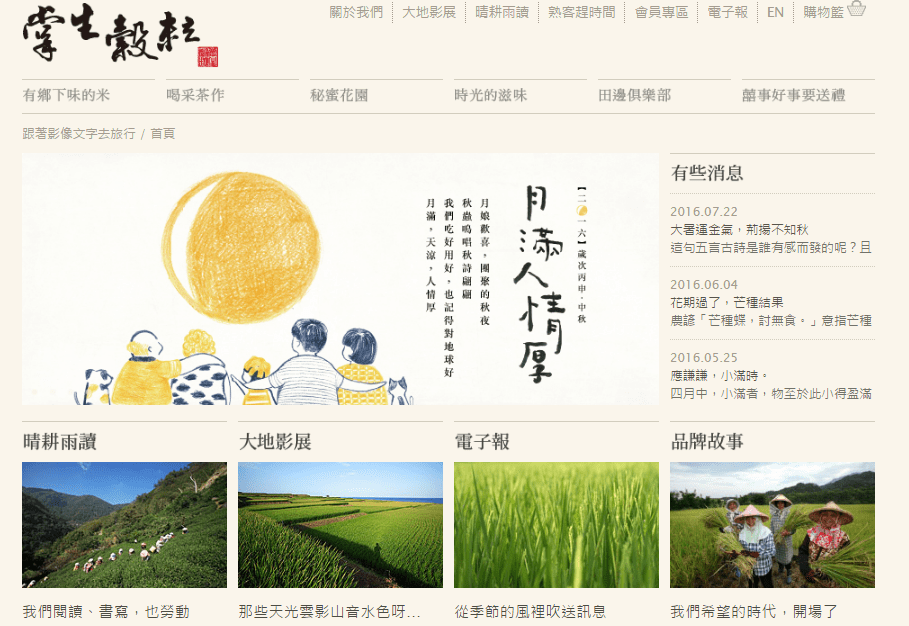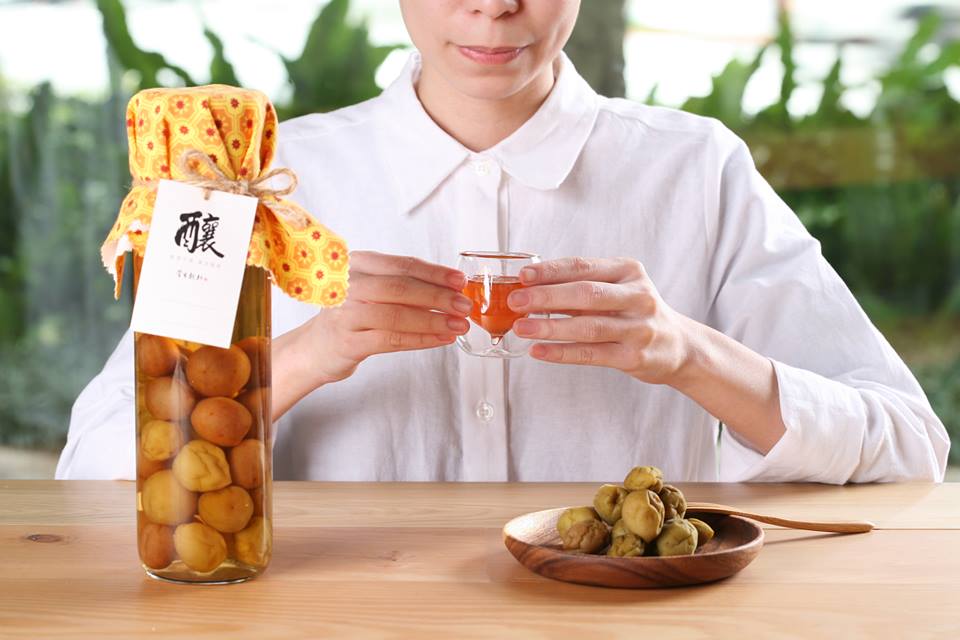Green In Hand: The Point Is Whether You Can Interpret the Value for the Customers
Translated by Jessie C.
The “individual farmers” derive benefits from the internet and technology since there are more platforms and channels for the farm produce to exposure. However, can the farmers rely on the “internet” to solve every problem?
“We are not an e-commerce for farmers. What we sale is a lifestyle.”

Green In Hand established in 2006. At that time, the fiber network and the large logistics companies were just well developed in Taiwan. “These two elements somehow made our success.” said Yun Yi Cheng, one the of Green In Hand’s founder.
What Green In Hand really do makes them look like a platform for farmers to promote their produce, but they are actually a company aiming to build a lifestyle.
“I’m once a reporter and my husband is a photographer.” said Cheng. “I have a pen and my husband has a pair of eyes. Then we can handle the content well.” They spend less than 5,000 dollars to set their first website. The key of their success is finding the right target. “Green In Hand only focus on people we want to communicate at that time. They are DINKs and who values individual claims very much. They are knowledge collectors and like to read information and make judgment by themselves. They are the kind of people that while passing through a street market, if a nanny tell them the produce is just arrived today, they will then buy them delightedly and cook with their friends. That’s the lifestyle they’re looking for.”

Cheng kept explained “Taiwan is a small but beautiful island. What we send today can be arrived tomorrow. However the terrains and culture are rich. We have great mountains, hills and plains; we also have Hans and Taiwanese aborigines living together. The things and lives cultivated by this land can not be count by numbers. They are history, geography, culture and the relation between people and the land.”
Building the Value of Brand by Offline Activities Through Years
In the past ten years, Green In Hand have tried lots of offline activities. For example, they held an event for people to drink tea for free, sharing the stories of tea and the tea planters. They also made desserts with chocolate and rice, inviting people to taste in many places. They held exhibition for the produce, making the produce respectable works and display them in different spaces.
Now, they still keep trying new ways to combine produce with something interesting. This spring, they put music and rice together. The event is named “Listen to the Gentle Power in the Spike of Rice.” Besides, the event starting from two years ago “Wine-making School” is attended by more and more people. They are now ready for the appointment for six hundred people of a corporation next year.
Setting off from rice, Green In Hand now adds tea, wine and honey to their business. Cheng tells us honestly that the work load is pretty tense because there are full industry and culture behind every kind of product waiting for them to learn. “Sets our foot in many kinds of product actually limited our strength that can be infused into a specific one. However, it’s a struggling thing to let go of any.

“The brand and industry like us is not for making a fortune.” To Cheng, the internet is a way for her to give service to the people than a tool for making money. There are only 24 hours a day. Cheng spends most of the time on the “content.” This concept and value can be the answer to the main question mentioned in the right beginning.
Ultimately, The Information Spreading Must Rely on Trust
When it comes to back-in-town young farmers, Cheng stopped for a while and said “Sometimes I’ll think ‘Am I making a good example or a bad one?’” Some people will copy Green In Hand’s way to success, but Cheng considered that as a dangerous thing. She believes that the important things are still your initial passion and the devoting heart.
Can the produce really be sold due to the internet? “If every produce can be put and seen on the internet, everything becomes so convenient. Can we have the space to create our own price? Our value is that we have much more marketing examples and marketing themes than the others. Putting our produce on the internet and racing for a lower price is not what we want to do. And what I doubt myself is not the content but the tool I use or the way people use the tools. Although we are trying to build a lifestyle, if we can not make it to a large scale or make good integration, everything will lose their ways.”
Cheng reminded the young farmers “Posting photos, writing some words and cooking by yourself may make you happy. That’s good. However, you should clearly know that agriculture need a bridge for communication. On the land, flowers in full bloom is just what you see right in front of the eyes. They don’t need any further interpretation. But can you make the customers understand the professional knowledge like ‘hybridization,’ ‘backcrossing’ and ‘gene cultivation”’ laying behind?”
“We can not reach a great economic scale in Taiwan. Besides, the correct information sometimes being pushed aside, and the value of produce would disappear in the process.” At last, Cheng reclaimed her belief for running a business. “While China is trying to prove right things by making money, we are trying to make things right and show people we can earn profit at last. However, it’s a bumpy way to go.”
中文版連結
Cover photo:PanX











留言討論